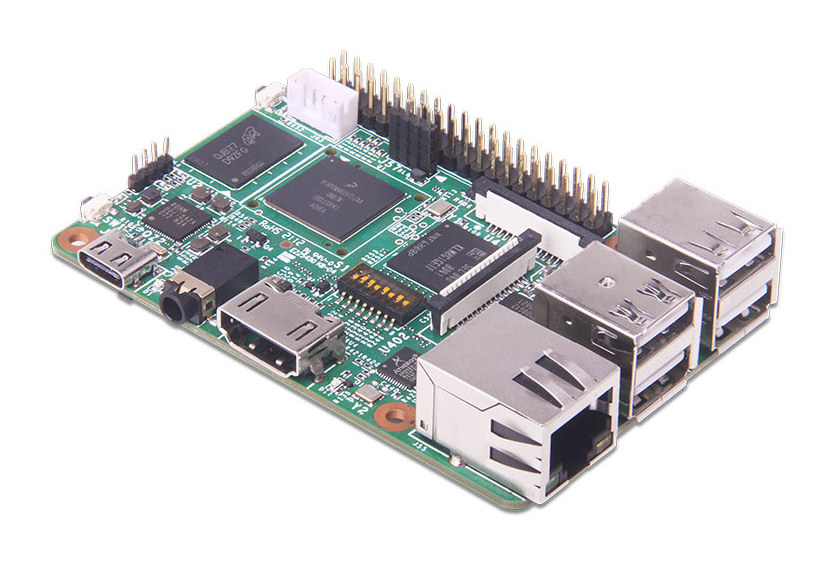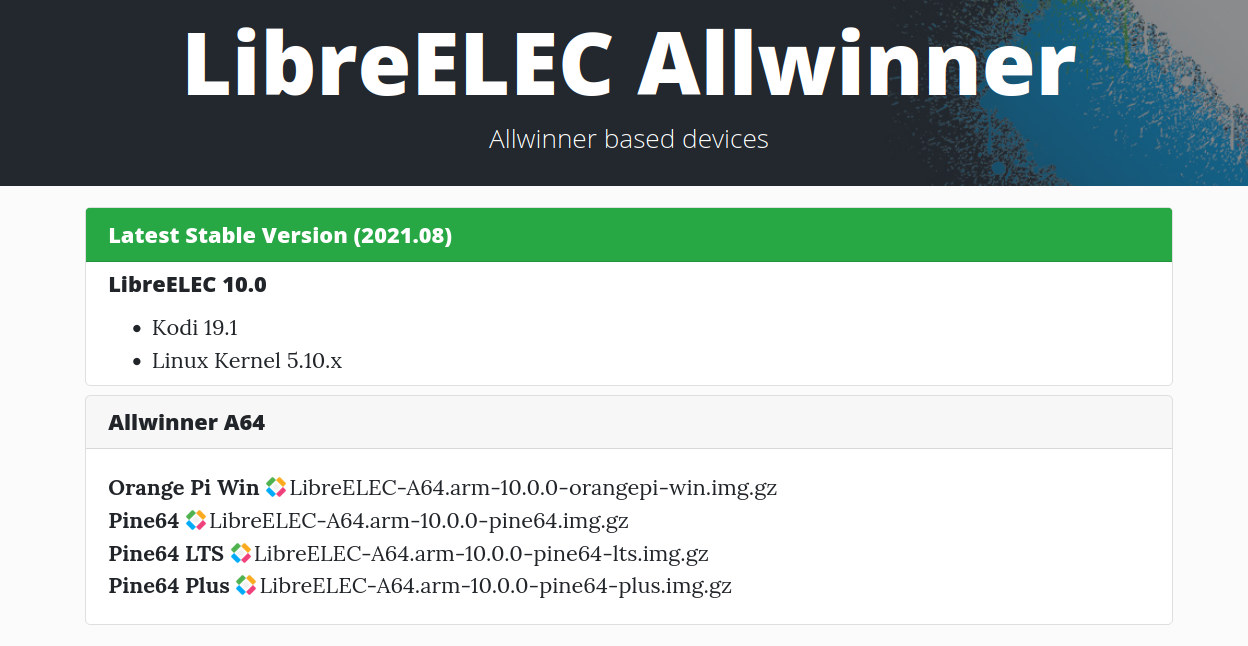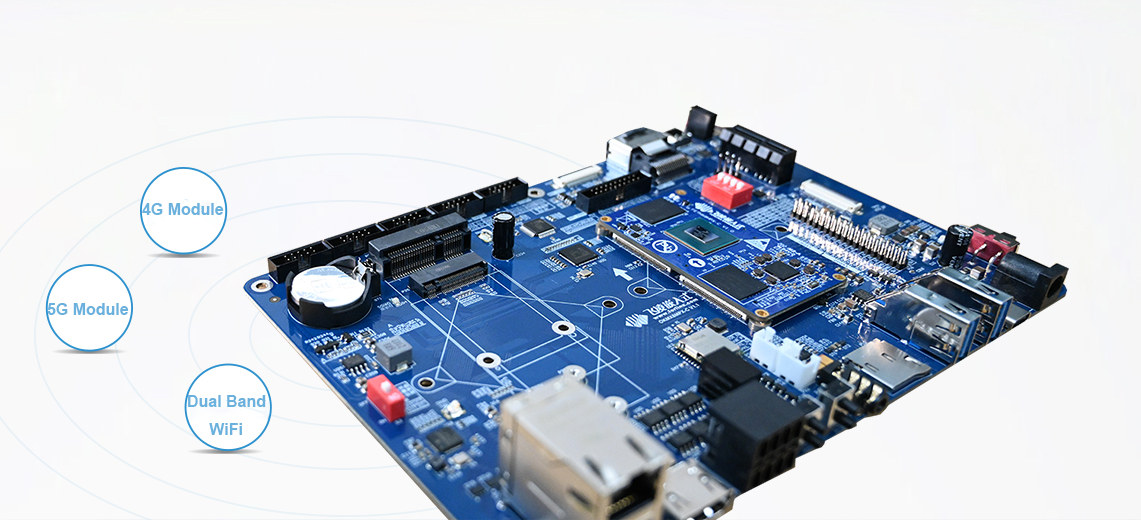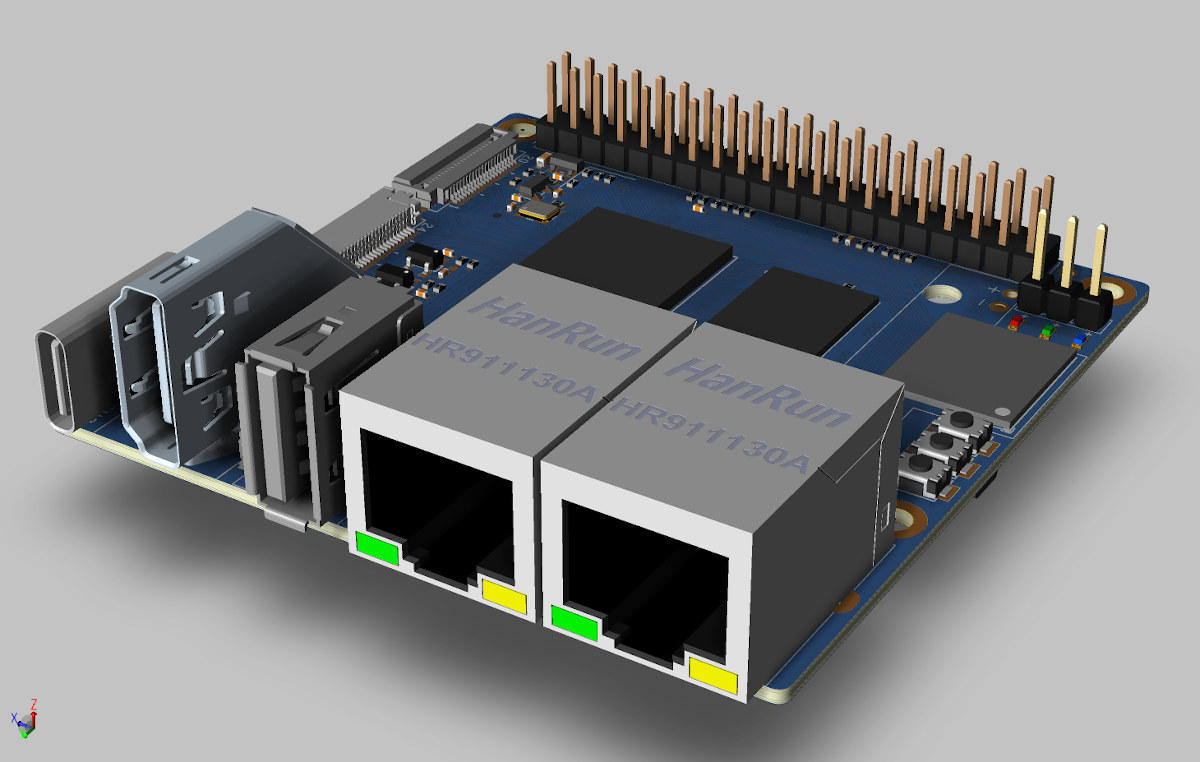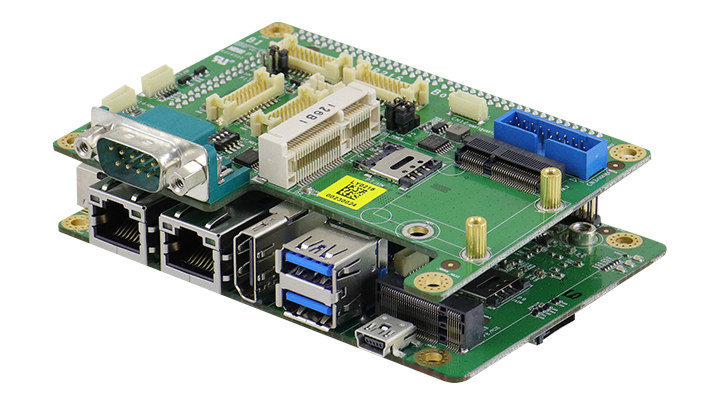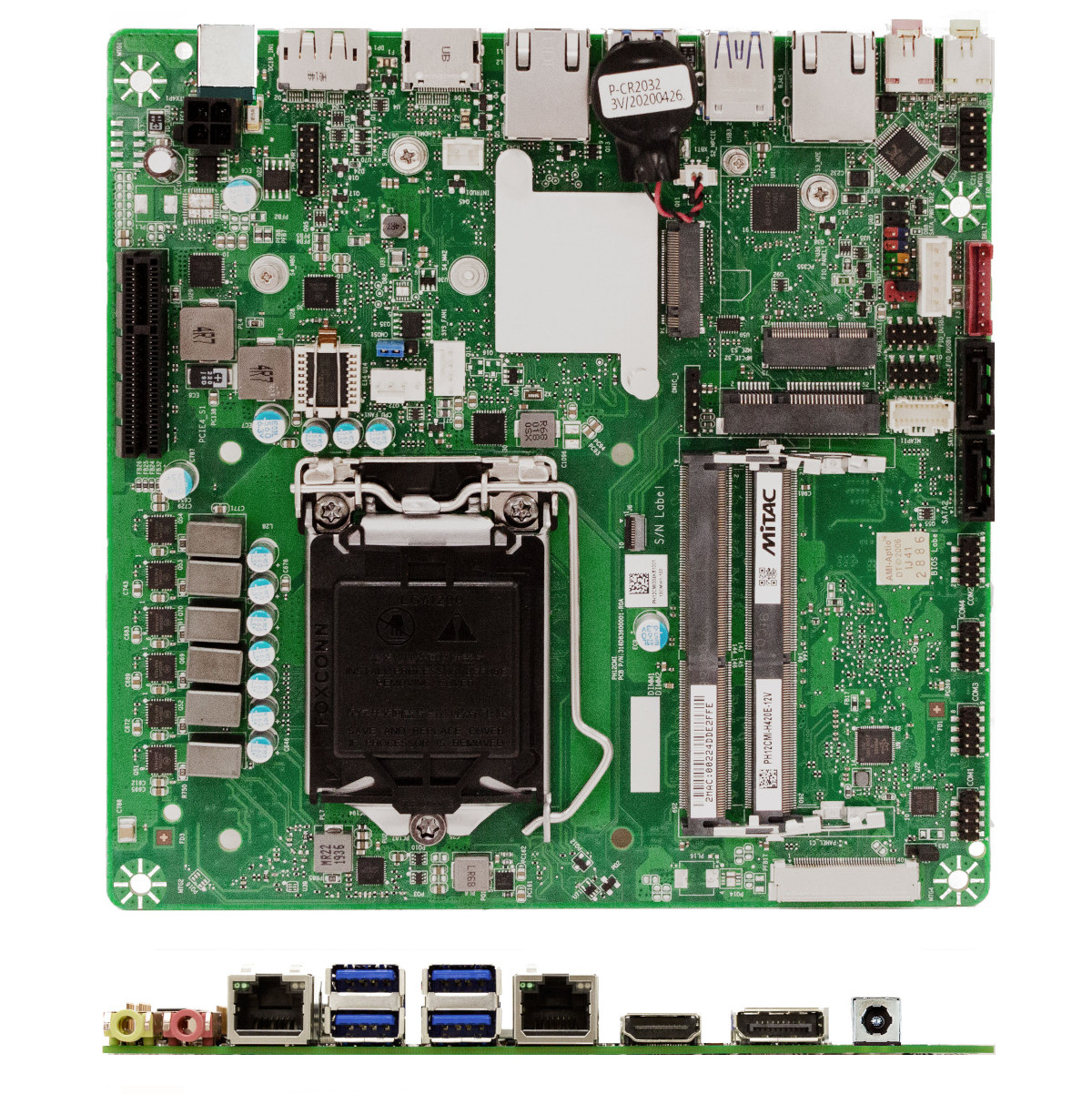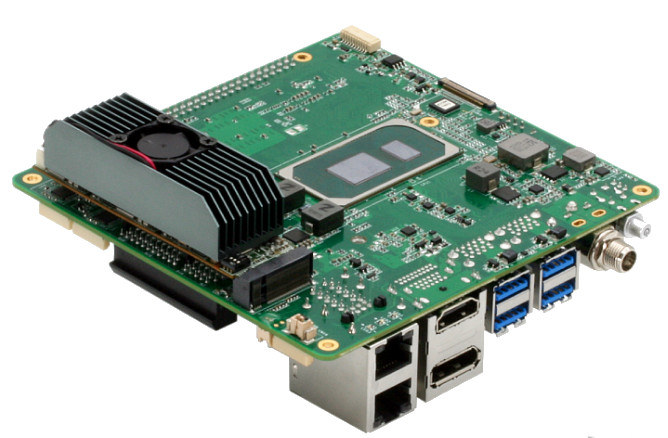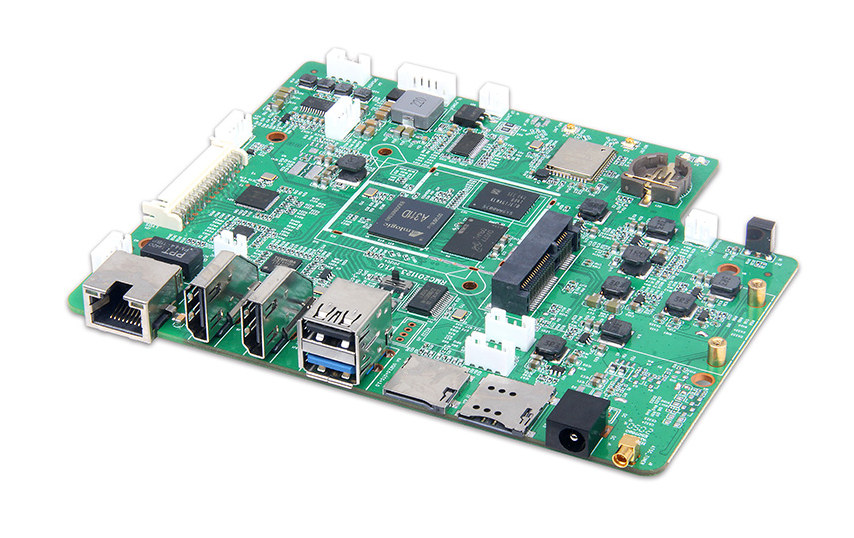Geniatech XPI-iMX8MM is a new member of the company’s XPI SBC family following Raspberry Pi 3 form factor and equipped with the 14nm NXP i.MX 8M Mini quad-core Cortex-A53 processor. The new board follows XPI-S905X (Amlogic S905X), XPI-3128 (Rockchip RK3128), and XPI-3288 (Rockchip RK3288) single board computer introduced over the last three years with many of the same features including HDMI output, four USB ports, Ethernet, and so on. Geniatech XPI-IMX8MM specifications: SoC –NXP i.MX 8M Mini quad-core Arm Cortex A53 processor @ up to 1.8 GHz with Cortex-M4 real-time core, 2D and 3D Vivante GPUs, 1080p60 H.265/H.264 video decoder, 1080p60 H.264 video encoder System Memory – 1GB (default) to 4GB LPDDR4 Storage – 8GB (default) to 128GB eMMC 5.x flash, MicroSD card slot Video & Audio Output HDMI 1.4 up to 4Kp30 3.5mm AV jack with composite video and stereo audio 2-lane MIPI DSI connector Camera – 2-lane MIPI […]
LibreELEC 10.0 minimal Linux OS for media playback released with Kodi 19.1
While most TV boxes and SBCs nowadays ship with or support a version of Android, people who just want the best viewing experience may prefer to switch to a Linux distribution such as LibreELEC or CoreELEC. The good news is that LibreELEC 10.0 has just been released with Kodi 19.1 and Linux 5.10 LTS. LibreELEC 10.0 is said to work well for Allwinner, Rockchip, and “Generic” Intel/AMD devices, while the Raspberry Pi 4 release’s codebase is rather new, and there may still be a few rough edges. Support for the previous generation Raspberry Pi boards has been dropped, and there’s no support for Amlogic platforms as CoreELEC already provides good support. Since LibreELEC 10.0 is based on Kodi 19.1, it benefits from the same features as Kodi 19 “Matrix” release including AV1 video decoding, a new skin, HDR support, and more. LibreELEC 10.1 support a wide range of single board […]
Feature-packed i.MX 8M Plus SBC offers dual GbE, PCIe, RS485, CAN Bus, 4G & 5G modems, and more
We’ve already covered plenty of NXP i.MX 8M Plus systems-on-module and carrier boards, but here’s another solution with Forlinx OKMX8MP-C SBC single board computer based on FETMX8MP-C SoM with 4GB LPDDR4 and 16GB eMMC flash. The feature-packed board also offers dual Gigabit Ethernet, 4G and 5G cellular connectivity support via mPCIe and M.2 sockets, multiple display and camera interfaces, RS485 and CAN Bus connector, USB interfaces, various expansion headers, and more… Forlinx OKMX8MP-C specifications: Forlinx FETMX8MP-C System-on-Module SoC – NXP i.MX8M Plus with quad-core Cortex-A53 processor @ up to 1.6 GHz, Arm Cortex-M7 real-time core, Vivante 2D/3D GPUs, 1080p60 video decoder/encoder, 2.3 TOPS AI accelerator System Memory – 2GB, 4GB (default), 6GB, or 8GB LPDDR4 Storage – 16GB eMMC flash Ultra-thin board-to-board connector (4x 80-pin connector with 0.5mm pitch) Supply Voltage – 5V Temperature Range – -40°C to +85°C Dimensions – 62 x 36 mm (8-layer ENIG PCB) Storage – […]
Banana Pi BPI-M2S Amlogic A311D SBC comes with dual GbE, HDMI & MIPI interfaces
There’s at least one more Amlogic A311D SBC coming our way with Banana Pi BPI-M2S equipped with 4GB RAM, 16GB eMMC flash, as well as two Gigabit Ethernet ports, combines with video interfaces that include HDMI, MIPI DSI & CSI, as well as two USB ports. This news comes just a few after we wrote about Geniatech DB10 AI development board based on Amlogic A311D hexa-core Cortex-A73/A53 processor and noted there were few platforms based on the SoC, apart from Khadas VIM3 SBC, and a few others. Banana Pi BPI-M2S SBC specifications: SoC – Amlogic A311D hexa-core processor with 4x Arm Cortex-A73 cores, 2x Arm Cortex-A53 cores, Arm Mali-G52 MP4 (6EE) GPU with OpenGL ES 3.2, Vulkan 1.0 and OpenCL 2.0 support, 5 TOPS NPU System Memory – 4GB LPDDR4 Storage – 16GB eMMC flash (option up to 128GB), MicroSD card slot Video interfaces HDMI 2.1 output up to 4Kp60 […]
5G compatible Arm Pico-ITX SBC is expandable through multi-function I/O board
IBASE IBR215 is a 2.5-inch Pico-ITX SBC powered by NXP i.MX 8M Plus quad-core ARM Cortex-A53 AI processor that supports 5G cellular connectivity via an M.2 3052 socket, and can be extended with an I/O expansion board with support for WiFi/BT, 4G/LTE, LCD, camera, NFC & QR-code functions. Equipped with up to 4GB RAM and 128GB flash storage, the single board computer has a ruggedized and fanless design that makes it suitable for industrial automation, smart home and buildings, smart cities and factories, retail environment, machine learning, and other industrial IoT applications. IBASE IBR215 specifications: SoC – NXP i.MX 8M Plus quad-core Arm Cortex-A53 processor @ up to 2.0 GHz with 512KB ECC cache, Arm Cortex-M7 @ up to 800 MHz, Vivante GC7000UL 3D GPU, Vivante GC520L 2D GPU, HiFi 4 DSP, 2.3 TOPS Neural Processing Unit (NPU) System Memory – 3GB DDR4 (optional 1/2/4GB) Storage 16GB eMMC flash (optional […]
MiTAC introduces Intel Elkhart Lake & Comet Lake thin Mini-ITX motherboards
MiTAC has unveiled three industrial thin mini-ITX motherboards based on Elkhart Lake and Comet Lake processors with respectively MiTAC PD10EHI with a choice of low-power Intel Atom, Celeron and Pentium Elkhart Lake processors, and two more powerful motherboards with MiTAC PH11CMI & PH12CMI based on up to an Intel Core i9 Comet Lake processor, and which are virtually identical except for a different chipset allowing vPro features and RAID support. MiTAC PD10EHI Elkart Lake thin mini-ITX motherboard Specifications: Elkhart Lake SoC (one or the other) Intel Atom x6413E quad-core processor @ 1.5 GHz / 3.0 GHz (Turbo) with 16EU Intel UHD graphics; 9W TDP Intel Celeron N6210 dual-core processor @ 1.2 GHz / 2.6 GHz with 16EU Intel UHD graphics; 6.5W TDP Intel Celeron N6211 dual-core processor @ 1.2 GHz / 3.0 GHz with 16EU Intel UHD graphics; 6.5W TDP Intel Celeron J6413 quad-core processor @ 1.8 GHz / 3.0 […]
UP Xtreme i11 Tiger Lake SBC launched for $299 and up
Ever since the launch of Intel Atom Cherry Trail powered Up Board SBC in 2015, AAEON has kept launching more UP boards with faster, yet still low power processors, as well as complete turnkey solutions based on their x86 SBC such as the UP Xtreme Smart Surveillance kit. The company has now started taking pre-orders for the UP Xtreme i11 Tiger Lake SBC, and a UP Xtreme i11 Edge Compute Enabling kit mini PC based on the board will become available in Q3 2021. The board features a choice of Intel 11th generation Tiger Lake Embedded “GRE” Core or Celeron processors, an Intel Altera MAX V FPGA, up to 64GB RAM, Gigabit Ethernet, 2.5GbE networking, and more. UP Xtreme i11 SBC Specifications: Tiger Lake “E”/”GRE” SoC (one or the other) Intel Core i7-1185G7GRE quad-core/8-thread processor @ up to 4.4 GHz with 96 EU Intel Iris Xe Graphics; up to 28W […]
Geniatech DB10 – An AI development board with Amlogic A311D SoC, HDMI input, optional TV tuner
Amlogic A311D hexa-core Cortex-A73/A55 AI processor has found its way into a limited number of platforms including Khadas VIM3 SBC, Zora P1 development board for Orbbec 3D cameras, as well as the upcoming Jevois Pro AI camera. Another development board that takes advantage of the Amlogic A311D processor is Geniatech DB10 which ships with up to 4GB LPDDR4, up to 64GB eMMC flash, and offers interesting features like a digital TV tuner, HDMI input, support for 3G/4G modems, and more. Geniatech DB10 specifications: SoC – Amlogic A311D hexa-core processor with quad-core Arm Cortex-A73, dual-core Arm Cortex-A53 processor, Arm Mali-G52 MP4 (6EE) GPU with OpenGL ES 3.2, Vulkan 1.0 and OpenCL 2.0 support, 5 TOPS NPU System Memory – 2GB LPDDR4 (4GB optional) Storage – 16GB eMMC flash (8 to 64GB optional) Video Output HDMI 2.1 up to 4Kp60 Dual-channel LVDS (shared with eDP) via 30-pin connector Input HDMI input up […]


